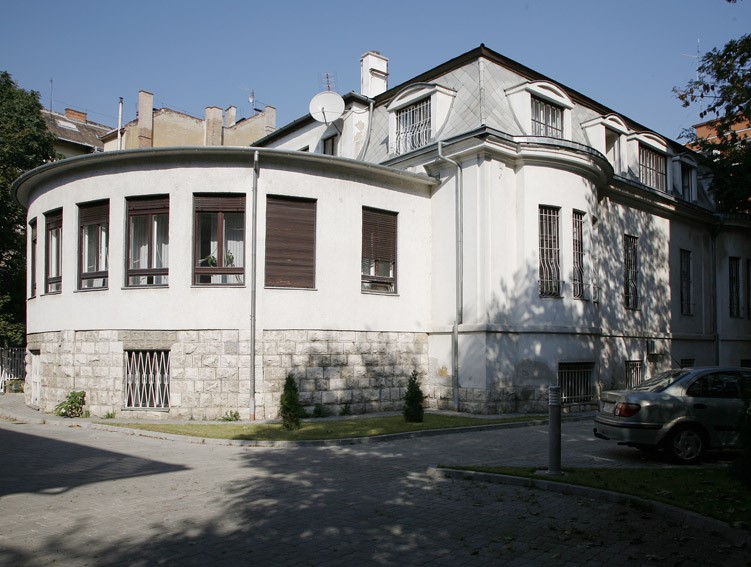The Foreign-Language Volumes published by the National Institute of Criminology
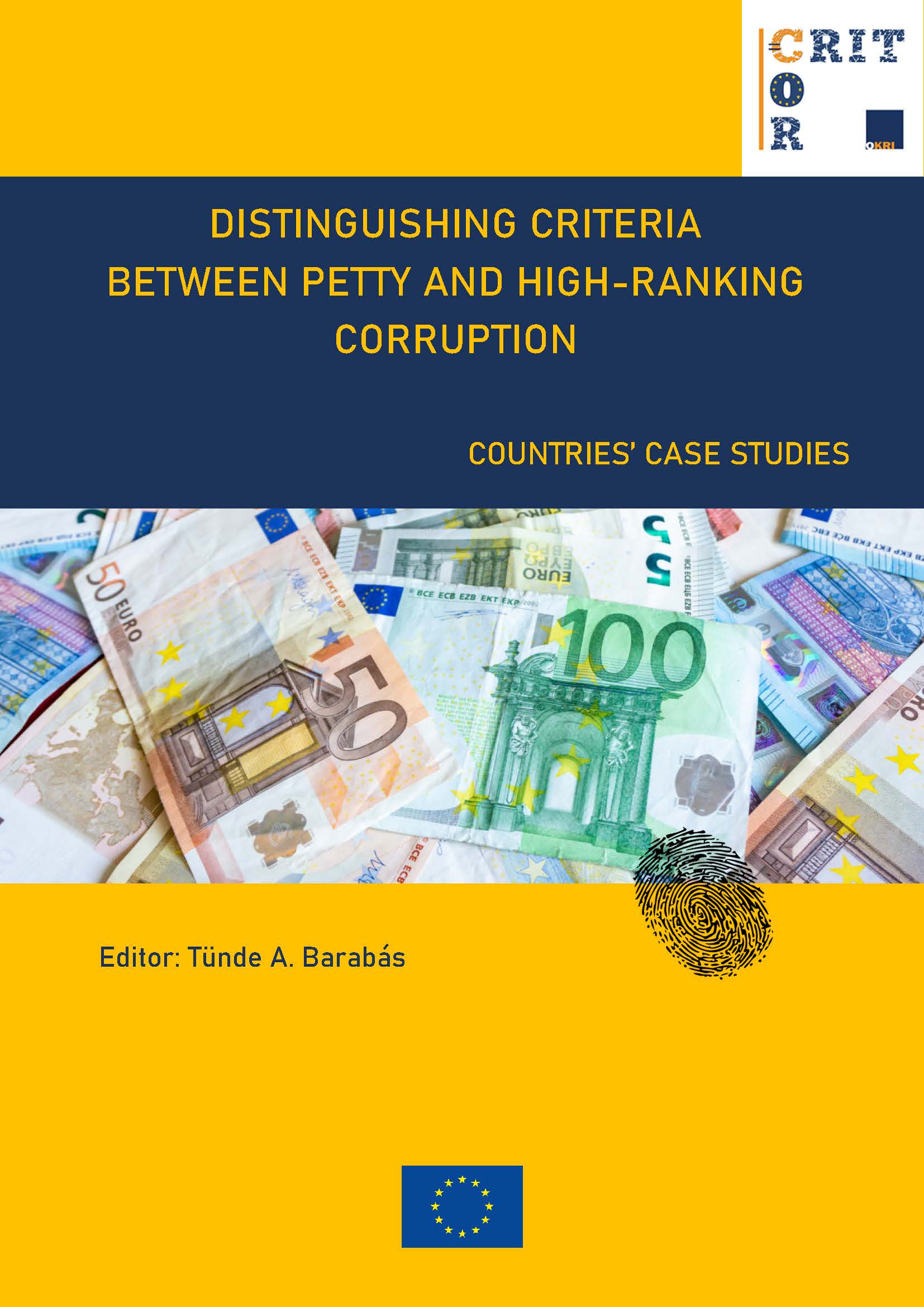 |
Distinguishing criteria between petty and high-ranking corruption Editor: Tünde A. Barabás |
Corruption causes damages to all EU Member States and to the EU as a whole, too. The CRITCOR-project (‘Corruption risk, risk of corruption? Distinguishing criteria between petty and high-ranking corruption’, supported by the Hercule III 2020) aims to explore factors that allow the formulation, the measurement, the analysis and the differentiation of levels of corruption. The demarcation of the different levels of corruption focuses on the distinction between low-level and high-level corruption, as the fight against the latter is gaining importance at EU level. With this approach, the project targets to further develop the potential ways of curbing corruption in the Member States of the European Union adopting a deliberative method which is new for researching corruption.
[National Institute of Criminology, Budapest, Hungary, 2021, ISBN: 978-963-7373-29-9]
 |
The Volume was carried out by the project entitled ‘Corruption risk, risk of corruption? Distinguishing criteria between petty and high-ranking corruption’ (101014783 – CRITCOR), which was supported by the Hercule III program of the European Union. |
♦♦♦♦♦♦
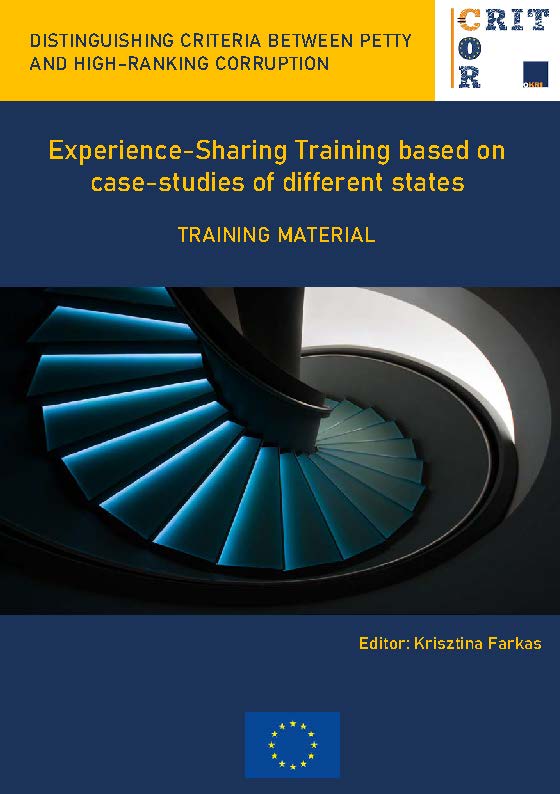 |
Experience-Sharing Training based on case-studies of different states Editor: Krisztina Farkas |
The CRITCOR project, in its third phase, organised an international training course on the detection, prosecution and sentencing of corruption offences. The training was based on a specific methodology and participants exchanged experiences through case studies. The anonymised cases were prepared and developed by representatives of the source country and the partners involved in the project. The case work also provided an opportunity to discuss specific investigative techniques and tactics, the use of covert means, investigative supervision and sentencing issues. The joint reflection also helped to achieve the specific objective of the project, which was to identify indicators to distinguish between low and high volume cases. This volume provides an overview of the event and its results.
[National Institute of Criminology, Budapest, Hungary, 2021, ISBN: 978-963-7373-31-2]
 |
The Volume was carried out by the project entitled ‘Corruption risk, risk of corruption? Distinguishing criteria between petty and high-ranking corruption’ (101014783 – CRITCOR), which was supported by the Hercule III program of the European Union. |
♦♦♦♦♦♦
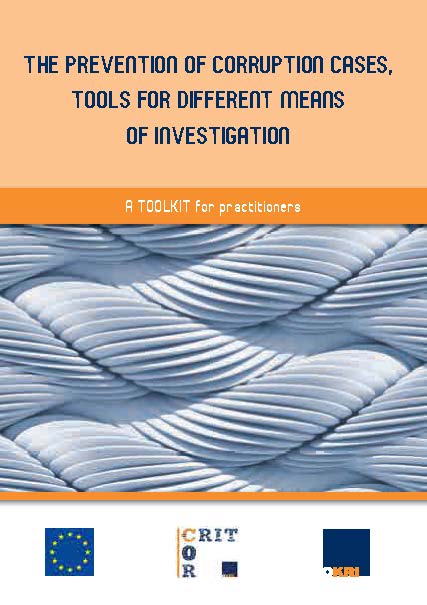 |
The prevention of corruption cases, tools for different means of investigation
|
The publication is based on the lessons we could learn from a nearly one and a half year project, entitled: “Corruption risk, risk of corruption? Distinguishing criteria between petty and high-ranking corruption”. It was developed with the aim of assisting domestic and foreign practitioners – investigators, prosecutors – in detecting and investigating corruption cases. In the Guide, after outlining a brief theoretical introduction, we have primarily aimed to answer practical questions, using the results of common thinking on international cooperation. We would like to thank the domestic and foreign partners for their help in implementing the CRITCOR project. We hope that with this publication we can make the fight against corruption even more effective.
[National Institute of Criminology, Budapest, Hungary, 2022]
 |
The Volume was carried out by the project entitled ‘Corruption risk, risk of corruption? Distinguishing criteria between petty and high-ranking corruption’ (101014783 – CRITCOR), which was supported by the Hercule III program of the European Union. |
♦♦♦♦♦♦
 |
Andrea Tünde Barabás (Ed.): |
The perception of insecurity is an important problem for today’s European societies. This is especially true of large cities, where a large proportion of the population live and therefore where the problems are concentrated.
The basic need of individuals and communities is to feel safe in the places of their everyday lives. The image of security is shaped by a number of factors, such as fear of crime, possible previous victim experiences, the quality of the living environment, the orderliness of the neighbourhood and transparent and illuminated spaces as well as a predictable economic environment, fear of unemployment and illness, social relations, or even a marginalized social situation.
The need for security is becoming ever stronger nowadays, while globalization challenges the authorities and citizens alike in new previously unknown situations.
This is a book dealing with one of the most urgent and most controversial issues for European countries, by addressing the questions related to the perception of insecurity among the populations of big cities.
[National Institute of Criminology, Budapest, 2018, p. 202, ISBN: 978-963-7373-25-1]
♦♦♦♦♦♦
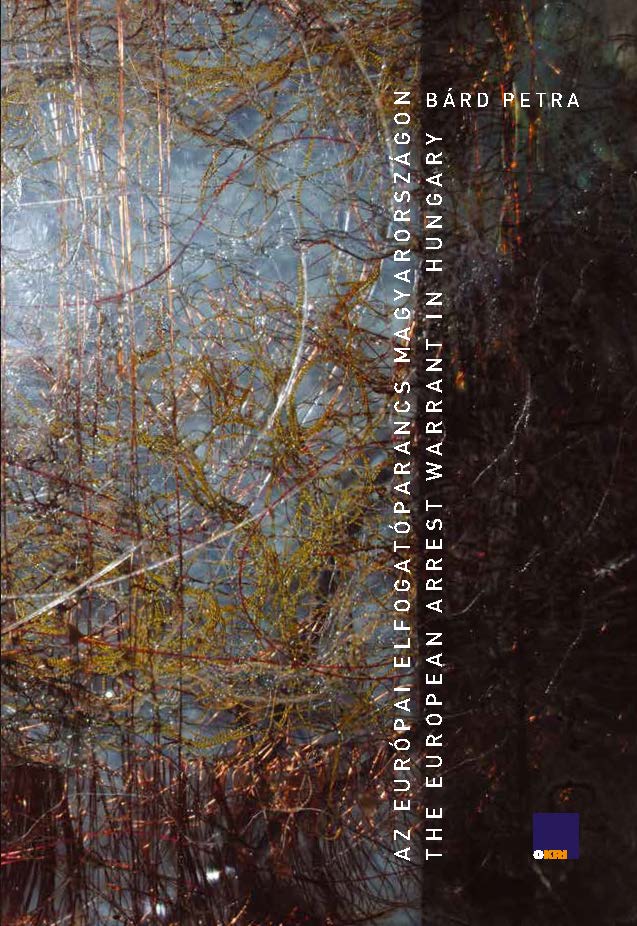 |
Petra Bárd |
”The volume is of great value to all scholars and students interested in the application of the European arrest warrant, the operation of mutual recognition based instruments and criminal cooperation between the EU Member States in general. Eurojust comes across European arrestwarrants concerning crossborder and organized criminality on a daily basis. Therefore, the author’s endeavour is a particularly useful theoretical and practical addition to the recognition and overcoming of obstacles when applying the legal institution.”
László Venczl
National Member Hungary, EUROJUST
[OKRI, Budapest, 2015, p. 241, ISBN 978-963-89468-9-8]
♦♦♦♦♦♦
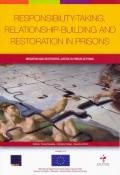 |
Tünde Barabás – Borbála Fellegi – Szandra Windt (Eds.) Responsibility-taking, Relationship-building
|
„The concept of restorative detention […] is an exciting new paradigm which offers a way out of the penal cul-de-sac. Practitioners have led the way; now researchers, such as those int the MEREPS project, are illuminating and consolidating (and when necessary constructively criticizing) their work. This book should inspire both researchers and practitioners to take the process forward.”
Dr. Martin Wright
Former director, Howard League for Penal Reform
[Publisher: OKRI, Print: P-T Műhely, Budapest, 2012]
♦♦♦♦♦♦
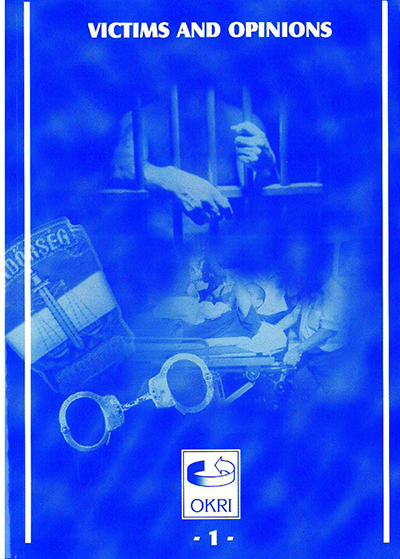 |
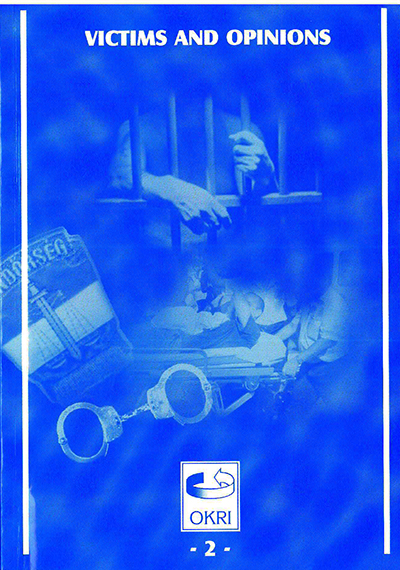 |
Ferenc Irk (ed.): Victims and Opinions Vol. I–II
[OKRI, Budapest, 2004] |
The volumes entirety can be viewed at the following links:
[Large files, downloading can be time consuming!]
» Victims and Opinion, Vol. II

